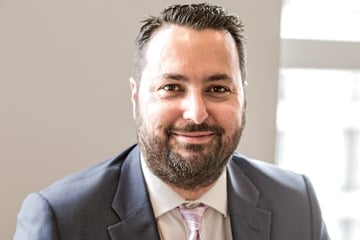
The Human Rights Tribunal of Ontario has ruled in favour of an evangelical Christian school that would not admit the son of a same-sex couple over the school’s stance on same-sex marriage.

The Human Rights Tribunal of Ontario has ruled in favour of an evangelical Christian school that would not admit the son of a same-sex couple over the school’s stance on same-sex marriage.
The unnamed married couple and their son, who live in a rural part of Ontario, took the case to the tribunal after the couple contacted the school about having their son attend a preschool program at the private school.
According to the ruling in H.S. v. The Private Academy, 2017 HRTO 791, the couple wanted their child to attend a Christian school that offered religious education.
However, the principal of the school — which does not get government funding — told one of the parents that their same-sex marriage would clash with the school’s teachings, including the biblical belief that marriage is between a woman and a man.
The couple launched a case alleging discrimination based on sex, creed, family status and marital status, but the tribunal ultimately ruled that the school had a legal right to limit who attends the school, based on s. 18 of the Human Rights Code.
“The school has a well-defined and specific set of creedal beliefs, mission statement and mandate. The respondent’s evidence was clear that the school requires all parents to share these values if they are considering the school for their family,” said the ruling.
“While I empathize with the parents’ feelings of unfairness that their child would not be admitted, the respondent made no secret of its beliefs and was upfront that it may not be the right fit for every family.”
Section 18 of the Code states that rights “are not infringed where membership or participation in a religious, philanthropic, educational, fraternal or social institution or organization that is primarily engaged in serving the interests of persons identified by a prohibited ground of discrimination is restricted to persons who are similarly identified.”
“In essence, this case is about whether the respondent can rely on section 18 of the Code as a defence to what would otherwise be discrimination under the Code. The respondent’s position is that it is a ‘special interest organization’ and that it did not infringe the right to equal treatment of services,” said the ruling. “It submits that it is a Christian school primarily engaged in serving the interests of persons identified by a particular creed and that it is entitled to restrict participation to parents who subscribe to its creed.”
The school had a handbook that explains its policies, and it requires parents of children attending the school to sign a statement of faith.
Albertos Polizogopoulos, partner at Vincent Dagenais Gibson LLP in Ottawa, represented the school at the tribunal. The same-sex couple was self-represented, and the tribunal made orders to make the names of the parents anonymous, and to refer to the school as “The Private Academy” to protect the identity of the child.
“My position was and remains that the law is pretty clear and that s. 18 of the Code was enacted specifically for this kind of a case,” says Polizogopoulos.
He said the school was created to service parents who have a specific set of beliefs, including the creedal belief that marriage is between one man and one woman.
“If you’re a die-hard Liberal or die-hard Conservative, the New Democratic Party should be able to say, ‘Well, you don’t get to work for us because you don’t subscribe to our political views,’” he says.
“We’ve got to recognize that like-minded individuals getting together for a common purpose or associating results in walls being built and people being excluded, but that doesn’t necessarily mean it’s discrimination,” he added.
Ranjan Agarwal, past chairman of the Ontario Bar Association’s constitutional, civil liberties and human rights law section and partner at Bennett Jones LLP, says he thinks similar cases will emerge where there is a “clash of rights.”
“In this case, a lesbian couple who is protected by the code tries to exercise their rights under the code against another protected group,” says Agarwal, who was not involved in the case.
He says the legislature has made a choice that religious groups or fraternal societies, under s. 18, are entitled to an exception under the code.
“I don’t think a lot of people know or understand that. A lot of people, I think, would say, ‘I’m part of a vulnerable group, I’m being mistreated by this majoritarian organization, my rights should be protected’ only to learn very quickly that, in fact, the legislature has made a choice to protect these groups,” he says.
Richard Francella, press secretary for the Ontario Minister of Education, had limited comment on the ruling.
“The Human Rights Tribunal of Ontario operates independently of government and we’re currently reviewing this decision,” he said in an email statement.
Angela Chaisson, a lawyer in Toronto who was not involved in the case, says it involves complicated issues. Human rights legislation is being used to violate human rights, she says.
“At the end of the day, my read of the decision is that this is just not the purpose of s. 18, and it was open to the tribunal member to find that it didn’t apply in these circumstances,” she says.
“They’re targeting gays, they’re not targeting people who got divorces, people who got abortions, they’re picking and choosing the groups that they don’t like, and they’re using s. 18 as a cover.”